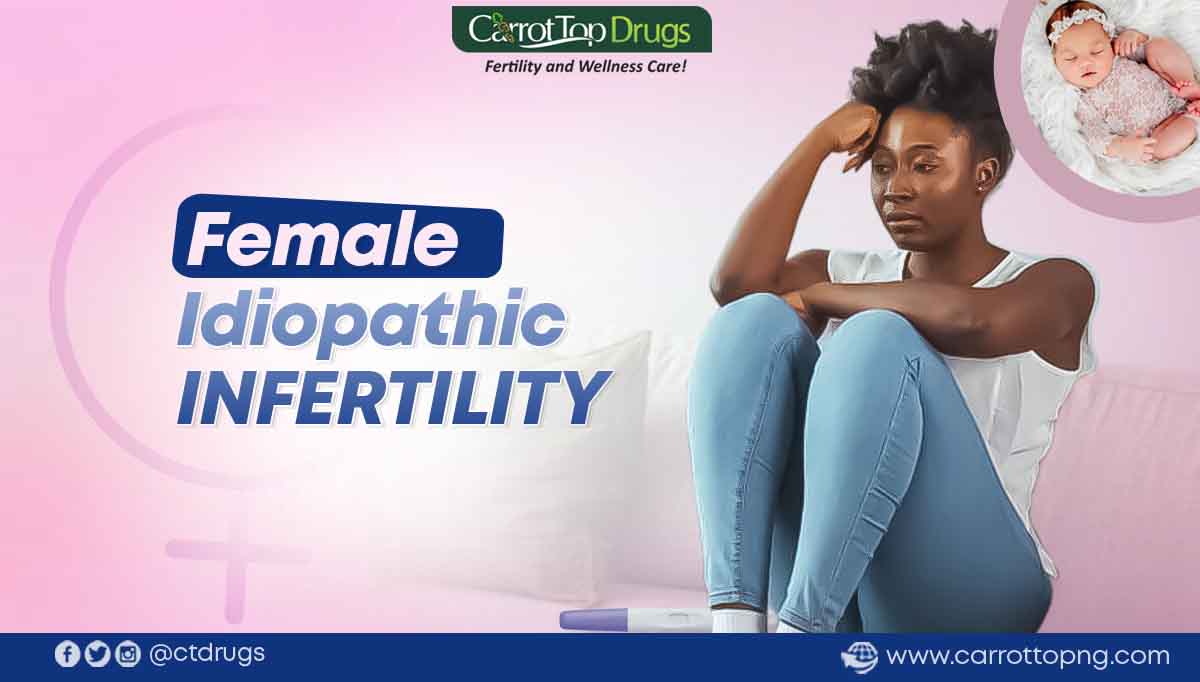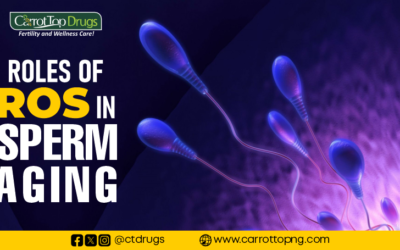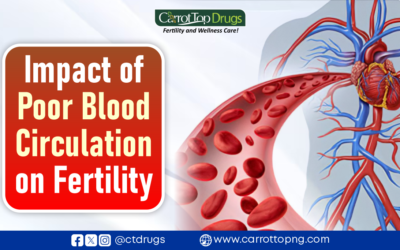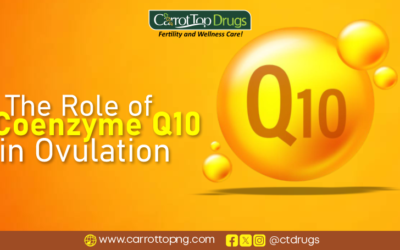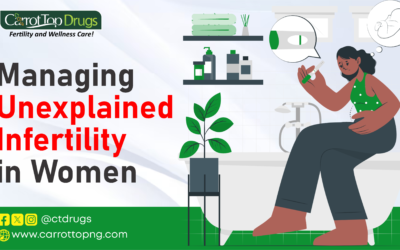Introduction
Female idiopathic infertility is a condition in which clinical examination does not reveal any pathological finding that might explain the infertility of the couple. It is a perplexing condition that many couples face when trying to conceive. In this article, we will delve into the intricacies of this condition, exploring its definition, prevalence, potential causes, diagnostic process, treatment options, and the emotional impact it can have on couples. By shedding light on this topic, we aim to provide valuable insights and guidance for those grappling with female idiopathic infertility.
Understanding the Challenges of Female Idiopathic Infertility
Female idiopathic infertility is a condition in which a woman experiences difficulty conceiving without any identifiable cause. It is a diagnosis of exclusion, made when other potential causes of infertility, such as tubal blockages, endometriosis, or polycystic ovary syndrome (PCOS), have been ruled out through extensive testing. The term “idiopathic” emphasizes the unknown origin of the condition, which adds to the frustration and confusion experienced by couples dealing with female idiopathic infertility. explains this condition in detail
Prevalence and Impact
It affects a significant number of couples worldwide. Studies have shown that about 10 -17% of couples struggling with infertility fall into the idiopathic or unexplained category. The impact of this diagnosis can be emotionally and psychologically distressing for both partners, as they grapple with the uncertainty surrounding their ability to conceive. Seeking professional guidance and support is crucial in managing the challenges associated with female idiopathic infertility.
Potential Causes of Female Idiopathic Infertility
It is called idiopathic infertility because the causes are not known. Therefore, we can only mention and explain the potential causes based on research and statistics. The potential causes may result in female idiopathic infertility are:.
1. Hormonal Imbalances
Hormonal imbalances, such as irregularities in the production and regulation of follicle-stimulating hormone (FSH), luteinizing hormone (LH), and estrogen, can disrupt the delicate reproductive balance. These imbalances can interfere with ovulation, impair the quality of eggs released, and affect the receptivity of the uterine lining for implantation. Hormonal imbalances may be a contributing factor in female idiopathic infertility.
2. Ovarian Dysfunction
Issues with ovarian function, including poor egg quality or diminished ovarian reserve, can significantly impact a woman’s fertility. Ovarian dysfunction can result from genetic factors, age-related decline, or exposure to environmental toxins. It is important to consider ovarian dysfunction as a potential cause when investigating female idiopathic infertility.
3. Structural Abnormalities
Structural abnormalities within the reproductive organs, such as uterine fibroids, polyps, or adhesions, may hinder conception. These abnormalities can interfere with the implantation process or disrupt the normal functioning of the fallopian tubes. Identifying and addressing structural abnormalities is crucial in understanding and treating female idiopathic infertility.
4. Immunological Factors
Some researchers suggest that immune system dysregulation or autoimmune responses might play a role in idiopathic infertility. When not functioning optimally, the immune system may mistakenly target embryos or sperm, leading to difficulties in conception. Immunological factors are a subject of ongoing research to better comprehend female idiopathic infertility.
Diagnostic Process
As stated above, female idiopathic infertility is one with no known cause. The underlying cause varies from woman to woman. Ideally, a physician would request some diagnostic test to diagnose what exactly is the cause of the unexplained infertility. Here are some of the common tests your healthcare provider may request for:
1. Medical History and Physical Examination
A thorough review of the medical history helps identify potential risk factors or underlying conditions that could contribute to infertility. The healthcare provider will also conduct a physical examination to assess for any signs of hormonal imbalances or structural abnormalities related to female idiopathic infertility.
2. Hormonal and Blood Tests
Blood tests are performed to assess hormone levels and check for any imbalances that could affect fertility. Tests for thyroid function, FSH, LH, and other hormones are commonly conducted to gain insights into a woman’s reproductive health. These tests play a vital role in diagnosing female idiopathic infertility.
3. Imaging Techniques
Imaging techniques like transvaginal ultrasound, hysterosalpingography, or magnetic resonance imaging (MRI) can provide visual information about the reproductive organs. These tests help identify any structural abnormalities or blockages that may be causing infertility. Utilizing imaging techniques is essential for diagnosing female idiopathic infertility.
4. Ovarian Reserve Testing
Assessing a woman’s ovarian reserve involves evaluating the quantity and quality of her remaining eggs. Tests such as anti-Müllerian hormone (AMH) levels, follicle count, or antral follicle measurements aid in determining the ovarian reserve and potential fertility. Ovarian reserve testing is a critical component in the diagnostic process for female idiopathic infertility.
Treatment Options
Since we have seen that female idiopathic infertility does not have a known cause, treatment may be challenging. However, do not lose hope. The specific treatment approach for idiopathic infertility depends on the individual case, here are some potential options that may be considered:
1. Lifestyle Modifications and Fertility Optimization
Adopting a healthy lifestyle, including a nutritious diet, regular exercise, stress reduction, and avoiding smoking and excessive alcohol consumption, can contribute to improved fertility outcomes. Lifestyle modifications play a significant role in optimizing fertility for women with idiopathic infertility.
2. Hormonal Therapies
In cases where hormonal imbalances are detected, hormone replacement therapy (HRT) or other medications may be prescribed to regulate the reproductive hormones and support the menstrual cycle and ovulation. Hormonal therapies are a common approach in managing female idiopathic infertility.
3. Assisted Reproductive Technologies (ART)
For couples struggling with idiopathic infertility, assisted reproductive technologies like in vitro fertilization (IVF), intracytoplasmic sperm injection (ICSI), or intrauterine insemination (IUI) may be recommended. These techniques assist in overcoming potential barriers to conception and increase the chances of successful pregnancy for women with idiopathic infertility. Assisted reproductive technologies provide advanced options for couples facing female idiopathic infertility.
4. Surgical Interventions
In some instances, surgical interventions may be necessary to address structural abnormalities or remove obstacles that hinder fertility. Procedures like hysteroscopy or laparoscopy can correct issues within the reproductive organs and improve the chances of natural conception for women with idiopathic infertility.
5. Supplements and Nutritional Support
Certain herbal supplements and dietary changes have been associated with potential fertility benefits for women with idiopathic infertility.
Evergreen Formular for Women is a supplement adjuvant for female idiopathic infertility. Research was conducted that compared women with idiopathic infertility who used a supplement with multiple vitamins and those who took a placebo. One-third of those who took the supplement conceived and none who took the placebo conceived.
This is why Evergreen Formular for Women is a recommended supplement. It contains antioxidants (Vitamin A, C, E), chasteberry, and Vitamin D which suppress androgens in women.
Emotional and Psychological Impact of Female Idiopathic Infertility
Dealing with this condition can take a toll on a couple’s emotional well-being. The uncertainty, disappointment, and frustration can lead to stress, anxiety, and depression. It is essential for couples to seek emotional support, whether through therapy, support groups, or counseling services. Open communication, mutual understanding, and sharing the experience with trusted loved ones can help alleviate the emotional burden and strengthen the relationship during the journey of female idiopathic infertility.
Conclusion
Female idiopathic infertility presents unique challenges to couples desiring to conceive. While the exact causes may elude us, advancements in reproductive medicine and supportive therapies provide hope and options for overcoming these challenges. By seeking professional guidance, addressing potential underlying factors, and exploring various treatment approaches, women with idiopathic infertility can increase their chances of achieving a successful pregnancy and fulfilling their dreams of parenthood.
FAQs (Frequently Asked Questions)
Q. Is female idiopathic infertility a common condition?
A. It affects approximately 15% of couples struggling with infertility, making it a significant concern for many.
Q. Can stress and emotional factors contribute to idiopathic infertility in women?
A. Emotional stress can impact fertility, but it is unlikely to be the sole cause of idiopathic infertility. However, managing stress is beneficial for overall well-being during the fertility journey.
Q. Are there any natural remedies or lifestyle changes that can improve idiopathic infertility in women?
A. Adopting a healthy lifestyle, including regular exercise, a balanced diet, stress reduction techniques, and avoiding harmful substances, can contribute to improved fertility outcomes for women with idiopathic infertility.
Q. How long should a couple try to conceive before seeking medical assistance for idiopathic infertility in women?
A. It is generally recommended for couples under 35 years of age to try conceiving for one year before seeking medical assistance. For couples over 35, seeking medical evaluation after six months of trying is advisable for women with idiopathic infertility.
Q. Are there support groups or counseling services available for couples dealing with idiopathic infertility?
A. Yes, there are support groups, online communities, and counseling services specifically designed to provide emotional

